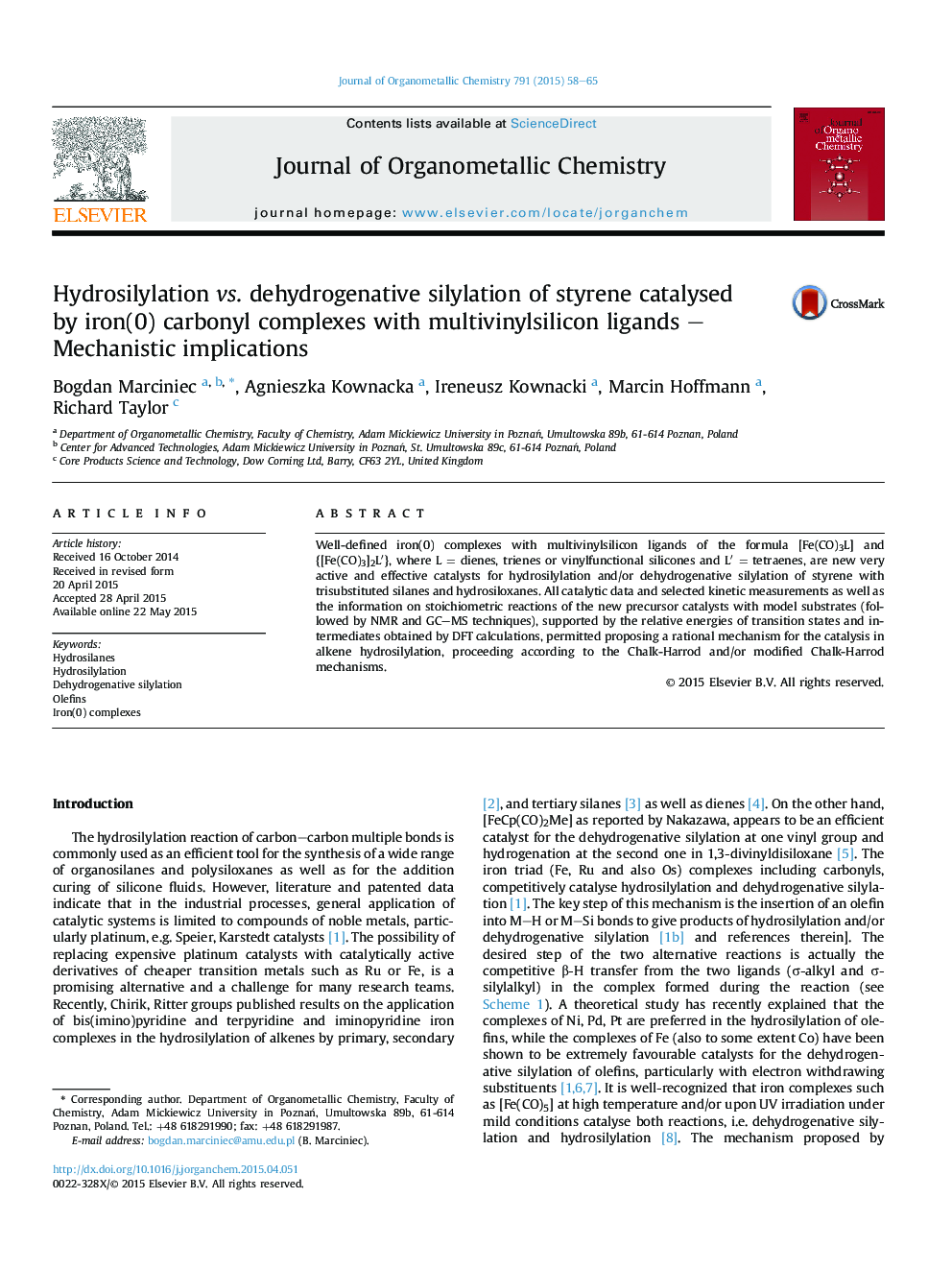| کد مقاله | کد نشریه | سال انتشار | مقاله انگلیسی | نسخه تمام متن |
|---|---|---|---|---|
| 1323201 | 1499852 | 2015 | 8 صفحه PDF | دانلود رایگان |

• The catalytic activity of the well-defined iron complexes Fe(CO)3L and {[Fe(CO)3]2L′} were studied.
• In the system styrene/HSiMe2Ph, the temperature dependence of the selectivity was observed.
• On the basis of kinetics, DFT calculation and NMR study reaction mechanism was proposed.
Well-defined iron(0) complexes with multivinylsilicon ligands of the formula [Fe(CO)3L] and {[Fe(CO)3]2L′}, where L = dienes, trienes or vinylfunctional silicones and L′ = tetraenes, are new very active and effective catalysts for hydrosilylation and/or dehydrogenative silylation of styrene with trisubstituted silanes and hydrosiloxanes. All catalytic data and selected kinetic measurements as well as the information on stoichiometric reactions of the new precursor catalysts with model substrates (followed by NMR and GC–MS techniques), supported by the relative energies of transition states and intermediates obtained by DFT calculations, permitted proposing a rational mechanism for the catalysis in alkene hydrosilylation, proceeding according to the Chalk-Harrod and/or modified Chalk-Harrod mechanisms.
New well-defined iron(0) complexes with multivinylsilicon ligands of the formula [Fe(CO)3L] and {[Fe(CO)3]2L’} proved to be very effective catalysts for hydrosilylation and/or dehydrogenative silylation. The proposed DS vs. HS mechanism is based on catalytic and kinetic measurements as well as spectroscopic studies of the intermediates, supported by DFT calculations.Figure optionsDownload as PowerPoint slide
Journal: Journal of Organometallic Chemistry - Volume 791, 15 August 2015, Pages 58–65